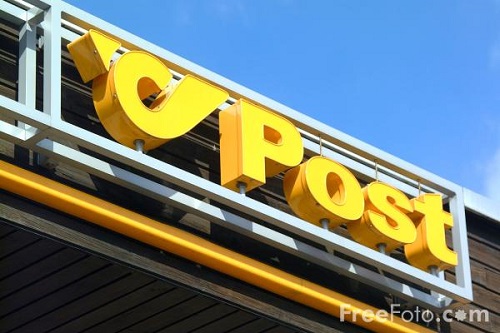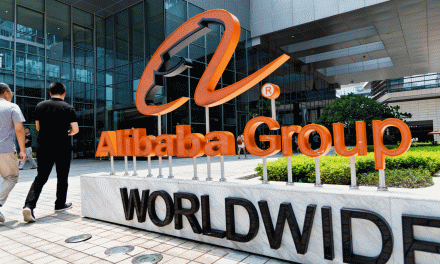
ASENDIA: A Vision for Global Mail
James Cartledge speaks to Marc Pontet, the Chief Executive of ASENDIA, the company formed this summer from the merger of the international mail businesses of La Poste Group and Swiss Post. ASENDIA may be a new name in the international mail market, but it is one that carries with it the experience and reputation of two major existing powers in the postal world. ASENDIA was officially formed in July 2012, a merger of the international mail operations of France’s La Poste Group and Swiss Post.
The central idea is that competing with the multinational giants in the EUR 10bn cross-border mail market, the two companies will be more effective united under the same banner.
Headquartered in Paris and Berne, the new company brings together La Poste Global Mail and Swiss Post International (SPI), although it will not include mail services into and out of France and Switzerland. In order to reassure the European antitrust authorities, the sale of Swiss Post International France will be necessary.
ASENDIA is currently in the process of integrating its operations to fully combine the service portfolios of La Poste Global Mail and SPI, with the expectation of the launch of the new unified entity early in 2013. The company has a presence in fifteen of the largest international mail markets in Europe, Asia and North America, with a network of 25 locations, more than a thousand staff, and an annual turnover of around EUR 400m.
The new company’s board is chaired by Ulrich Hurni, the Swiss Post Deputy Chief Executive and head of Swiss Post’s PostMail division. La Poste Group Deputy CEO Nicolas Routier is Vice Chairman.

ASENDIA’s management team is led by Chief Executive Marc Pontet, with SPI’s Head of International Mail Daniel Bättig appointed as Deputy CEO, CFO and Executive Director for Asia, and La Poste Global Mail Chief Executive Béatrice Roux becoming Deputy CEO and Executive Director Europe.
Pontet was elected as Chief Executive after taking a prominent role in the discussions between La Poste and Swiss Post about the merger. The companies initially revealed their plans to the market back in December 2011, before seeking EU Commission approval, which ultimately came in July 2012.
Rationale
Pontet says the two postal groups had each independently assessed the situation in the international mail market and both came to the conclusion that an alliance with a similarly strong partner could be highly beneficial.
The two organisations perceived that the best way to attain a stronger position in the market, to seek growth and to provide the kind of service quality their customers deserved, but without taking a major risk in terms of investment, was to find a partner with whom to reinforce their respective positions.
Pontet says that the complementary nature of La Poste’s and Swiss Post’s international networks made the two obvious partners, but he reveals that the partnership really came to life because the two groups are among a select number of operators which holds a particularly positive vision of mail in the international context.
“It’s not the case with 100% of our colleagues and competitors in the market,” the ASENDIA CEO says. “Both La Poste and Swiss Post are fully aware of the level of uncertainty we have in the market, and the need for restructuring activities. But, at the same time, both groups have a very positive vision of innovation and the new services that have to be provided to customers.”
Pontet explains that although in general international mail volumes have been declining by a few percentage points each year over the past decade, his company’s “positive vision” is built on the fact that since 2011, unlike in domestic mail markets, there is a belief that cross border mail volume decline has slowed or even halted.
“It’s probably a bit early for real analysis of this,” he says, “but I would say that the volumes have more or less stabilised for the last eighteen months. I don’t know if we have arrived at a particular threshold, and this is not the case for domestic volumes, but this stabilisation of volumes is very good news.”
Pontet concedes that some segments of the cross border market are still experiencing decreasing volumes, notably transactional mail, but he says that this is very much being compensated for by growth in areas such as direct mail, catalogues and small goods.

Ulrich Hurni (left) of Swiss Post is now the ASENDIA chairman, while Marc Pontet of La Poste is chief executive of the new international mail company
“This has been very interesting before the merging of our activities from Swiss Post and La Poste – for the last two years we’ve had a very good level of growth in both groups,” he says. “So we really expect that if the market is stabilised, or in slow decline, we will have growth at ASENDIA for the next three or four years.”
Strategy
Pontet’s view is that the networks of La Poste Global Mail and SPI are complementary in many respects, a factor that proved significant in the original discussions about a merger.
“On La Poste’s side, we have a very strong position in the US market and the UK market,” he notes, “and on the Swiss side they have a strong position in Germany, in many other European countries and in Asia.”
In general, Pontet says bringing together the two networks will see market leading positions reinforced in the US, the UK and Germany, while operations in, for example, southern Europe and Scandinavia will see ASENDIA as a smaller challenger in the market striving for a more leading position. There should be some synergies and improvements in service quality thanks to the improved economies of scale, Pontet suggests, but he says there are few overlaps between the two companies that would require closures.
Globally, Pontet says the strategy for ASENDIA is very much to consolidate its position in its existing markets as a first step, and only when this has been achieved will the company consider external growth into new markets by acquisition or organic expansion.
Developing the portfolio
The company is in something of a transition period for the next few months, as it integrates its networks, sells off SPI France, and develops a harmonised portfolio. The ASENDIA CEO says priority right now is to ensure a top quality core business, before any moves are made to expand into additional added value or digital services.
The core business reflects the Universal Postal Union’s definition of international mail, Pontet says: mail up to two kilogrammes in weight, including direct mail, press and publishing, catalogues and small goods. ASENDIA will strive to be a leader in business to consumer global mail, including the lucrative e-commerce segment, and also direct mail.
Pontet’s view: “We are well positioned to provide these kind of B2C services, and would have to provide excellence in sorting, transport and delivery – the classic services.”
In the future the new company will aim to provide a full range of services for its customers, potentially bringing in partners where needed, with expectations of continued close working with other companies in the La Poste and Swiss Post groups.
“I think it’s important that at the beginning of this new adventure with ASENDIA, we are strongly focused on what we believe to be our core business, and not to diversify in some uncertain markets,” is Pontet’s view.
Value of the mail
A graduate of the Institute of Political Studies of Bordeaux, Pontet brings with him experience from a career at La Poste stretching back to 1991. Including his role as Head of Strategy and Development in the Group’s international mail division from the late 1990s to early 2000s, Pontet has been involved with the international mail market for more than twelve years.
So, what does the ASENDIA Chief Executive see as the key challenges for his new company and for the international mail market? Pontet’s response is that it is something he has been contemplating for most of the time he has been involved in the global mail sector: the transformation of the market with regard to the value of the mail service.
“I’ve always had the feeling that the international mail market has been positioned as the low value market, because historically the level of terminal dues was very low, so it was possible for major operators to sell at a low price,” he explains. “I think the challenge is to transform this, because this service has a high value for the customer. With a low return on investment, it is very important for all our customers to drive their own customer relations.”
Pontet believes that his new team knows the importance of providing a high value service to support that transformation, but that it must also become involved in the process of raising awareness among customers of the high value that can be gained through the international mail system.
“It will take time – we all know that for the next few years, the competition on prices will remain a key element of the market, but at the same time I think it is the responsibility of the leaders of the market – and ASENDIA is one – to educate customers that the choice of mail in developing their customer relations is one about a very strong impact on their own customers.”
Pontet concludes: “Probably, it is a challenge that is more widespread than just the international mail market, it is a challenge that all postal operators face, too.”

This interview appears in full within the September 2012 edition of Mail & Express Review, the quarterly magazine and sister title of Post&Parcel.
For more information about subscribing, click here »












What is logic of name ASENDIA ? Targeting Asia + India ? It doesnot come out in the article.